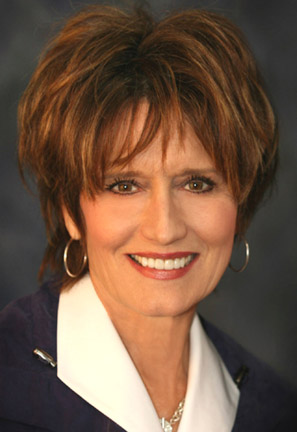
DALLAS (BP) — Reflecting on many years in ministry, I am drawn to the truth of Proverbs 27:17: “As iron sharpens iron, so one man sharpens another.” I have seen it play out in my own life more times than I can remember.
We usually think of ministry as investing our lives through serving others, as we hopefully “sharpen” them through discipleship, worship and community. However, others likewise have sharpened me in the past — often when I didn’t even realize it.
What does this proverb mean, exactly? Most commentators see it as a statement of how people affect, or influence, one another. The essential picture is this: Two things of the same nature fashion each other in a way that benefits them both. The word “sharpen” is used several times in other passages, referring to swords that are sharpened for increased usefulness.
When we place this principle in the context of a Christian community, our relationships will naturally affect each other, hopefully for the good. Our lives are generally shaped in our daily interaction with others, not just upon hearing great sermons or Bible studies. It’s often the thousands of smaller moments that sharpen us in profound ways.
For example:
— For several years I taught women’s Bible study and college-age Sunday School with a good friend, a gifted teacher and true Bible student whose lessons had strong illustrations, solid content and practical application. When it was my turn to teach, I was determined to continue that trajectory and worked hard to match her standard. She sharpened me.
— I have a friend who is an older woman, a true prayer partner. One day we were discussing a mutual friend who was having family difficulties. She said, “Honey, she doesn’t know what she doesn’t know.” I was puzzled; I had never heard that phrase before. After she explained, I instantly took that saying to heart and determined from that point on I would seek to “know what I don’t know.” I have used that bit of wisdom time and time again. For example, I don’t know the life perspective of a lonely millennial or the desperate fears of a refugee mother. Nor do I know the Black Lives Matter experience; I haven’t lived that story. I need to stop and listen to their stories before making judgments or presumptions. This phrase continues to sharpen me.
— Sometimes sharpening comes from an awkward or negative experience. I once sat at a lovely dinner when one of the guests began to make rude accusations against the person seated directly across the table. The rest of us sat in stunned silence until the diatribe was over. I later asked God to please never ever let me say anything to another person that was as appallingly rude as those comments, not to mention completely unchristian. I will never forget the hurt and embarrassment on the face of the accused. That experience sharpened me in that I want to always be fully aware of how my comments and conversations make others feel.
There is a New Testament counterpart to this proverb, “And let us consider how we may spur one another on toward love and good deeds” (Hebrews 10:24). This can’t happen if we aren’t sharing our lives in community with others. And something interesting happens along the way — as you invest in others by seeking to sharpen them, you discover they have done the same for you.
Sharpened knives increase their usefulness, and sharpened Christians do as well.
















